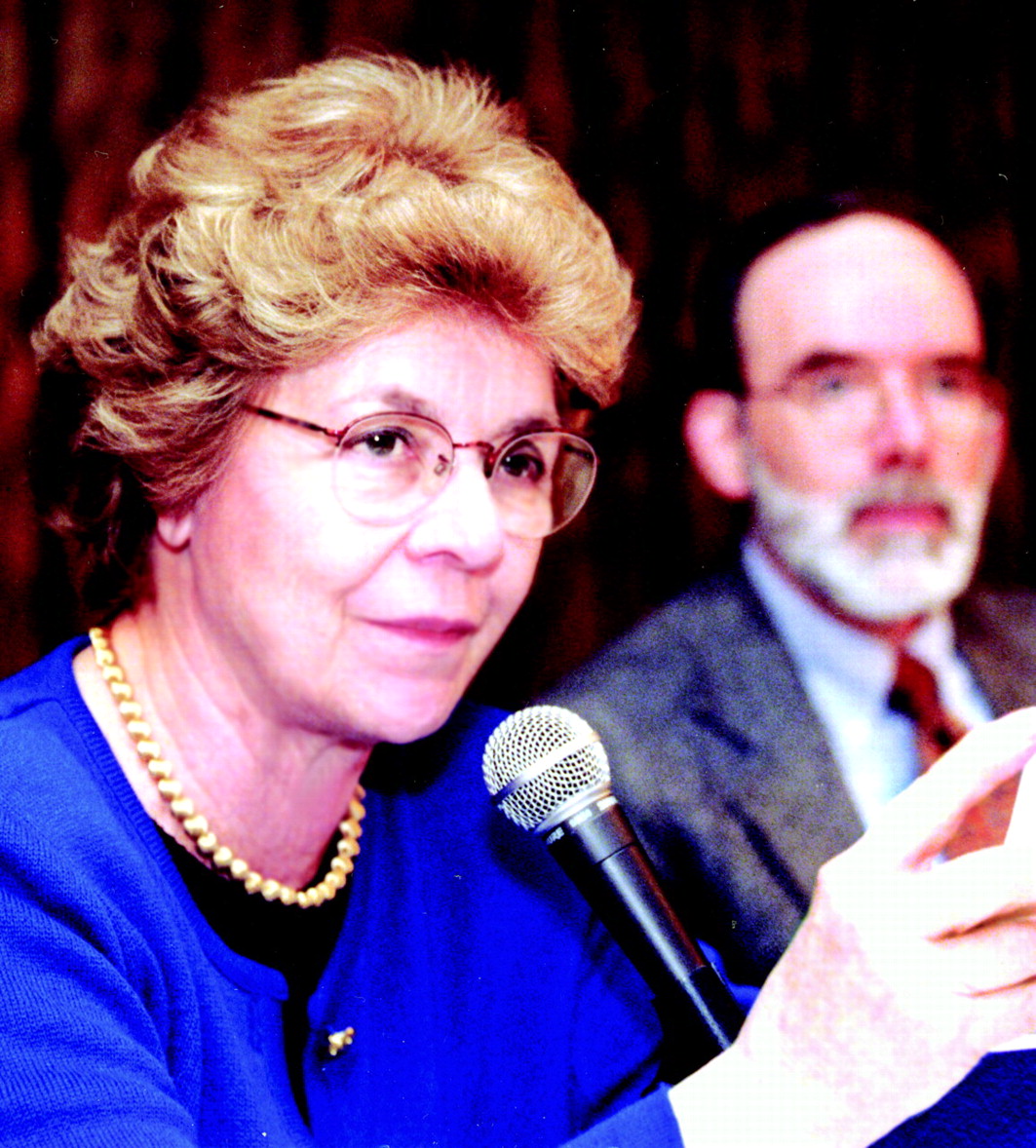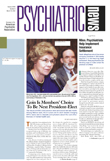The results have been tabulated in the 2002 APA election, and Marcia Goin, M.D., of Los Angeles won the race to be the Association’s next president-elect.
Members chose Steven Sharfstein, M.D., to succeed Goin as one of APA’s two vice presidents, and Carol Bernstein, M.D., was elected to a second term as treasurer. (Michelle B. Riba, M.D., is APA’s other vice president.)
Goin, director of residency training and the adult psychiatric outpatient department at Los Angeles County General Hospital/University of Southern California School of Medicine, outpolled Sidney Weissman, M.D., of Chicago in the president-elect contest. Goin won 62.3 percent of the vote to 37.7 percent for Weissman.
Commenting on her election victory, Goin told Psychiatric News that she is “honored” that APA members have shown their support for her ideas and goals. One of the changes she urged in her campaign was to rename APA the American Psychiatric Medical Association—a response to the “vast number of people who remain unaware of the fact that psychiatrists are graduates of medical school.” Goin observed, “Giving up the familiar and moving on to the new isn’t always easy, but many whom I have talked to are eager to support this name change. It would be one step in our outreach to the public and to legislators to more clearly identify our training and our credentials.”
She continued, “The election campaign effectively clarified the direction APA must take to flourish and fulfill the serious needs of our colleagues and our patients.” To meet those needs in a time of shrinking financial resources in both the public and private sectors, she noted, will require APA “to use emerging data on the cost savings from recognizing and treating mental illness to urge a shift in funding resources to better meet our patients’ needs.”
Goin emphasized that she is “optimistic” that she can help the Association “surmount problems in our infrastructure at an especially difficult moment in its history.”
She added that she appreciates that her opponent “ran an issue-oriented campaign” and looks forward to his contributions “as we work to provide the best in patient care in both the public and private sectors.”
Sharfstein garnered 65.1 percent of the vote, besting opponent Barry Chaitin, M.D., of California, who received 34.9 percent. Sharfstein is president of the Sheppard Pratt Health System in Maryland and vice chair of the psychiatry department at the University of Maryland. He also cochairs APA’s Joint Commission of Government Relations and Committee on Psychiatric Reimbursement.
In her re-election bid for treasurer, Bernstein won 56.9 percent of the votes over opponent Michael Vergare, M.D., of Pennsylvania.
In the race for trustee-at-large, David Fassler, M.D., of Vermont outpolled incumbent Herbert Peyser, M.D., of New York by 53.4 percent to 46.6 percent. Fassler chairs the APA Council on Children, Adolescents, and Their Families and is vice chair of the AMA Section Council on Psychiatry.
(APA has three trustee-at-large positions, one of which is reserved for an early career psychiatrist. Each year one of the three slots is up for election.)
Angela Harper, M.D., a resident at the University of South Carolina School of Medicine, emerged victorious in the three-way race to be the next member-in-training trustee-elect. Harper’s opponents were Sonia Patel, M.D., of Hawaii and William Wood, M.D., of Massachusetts.
Two of APA’s Areas elected trustees this year. In Area 2 Ann Marie Sullivan, M.D., of New York City received 62.5 percent of the vote, while Richard Altesman, M.D., got 37.5 percent.
In the race for Area 5 trustee, incumbent Jack Bonner, M.D., of South Carolina won a second term on the Board, outpolling Anita Everett, M.D., of Virginia by 53 percent to 47 percent.
The tenure of the newly elected Board members begins at the close of APA’s 2002 annual meeting in May. At that time the current president-elect, Paul Appelbaum, M.D., will become APA president.
APA members were also asked to vote on an amendment to the Association’s bylaws that would have required the Assembly to ratify any bylaws changes that the Board of Trustees approves.
While an overwhelming 92 percent of members voting on the amendment gave it a positive vote, it failed to pass because too few members cast votes on it. For a bylaws amendment to be adopted, at least 33 1/3 percent of eligible voting members must vote, and only 31 percent did so.
The amendment would have required that a two-thirds majority of Assembly votes be cast in favor of a Board-approved bylaws amendment before it can be enacted. If a bylaws change would have been enacted before the next Assembly meeting, a two-thirds majority of the Assembly Executive Committee participating in a meeting at which a quorum was present could have voted on the bylaws change.
The number of eligible voting members who cast ballots in the 2002 election was 9,564, or about 31 percent of all eligible voting members—the lowest percentage since 1968, when APA began contested elections. Last year 36.3 percent, or 11,447, of APA's eligible voting members cast ballots.
With members now able to cast their ballots online in the APA election, 7.4 percent of the voters chose this option.
A chart showing the APA election results in detail will appear in the next issue. ▪

